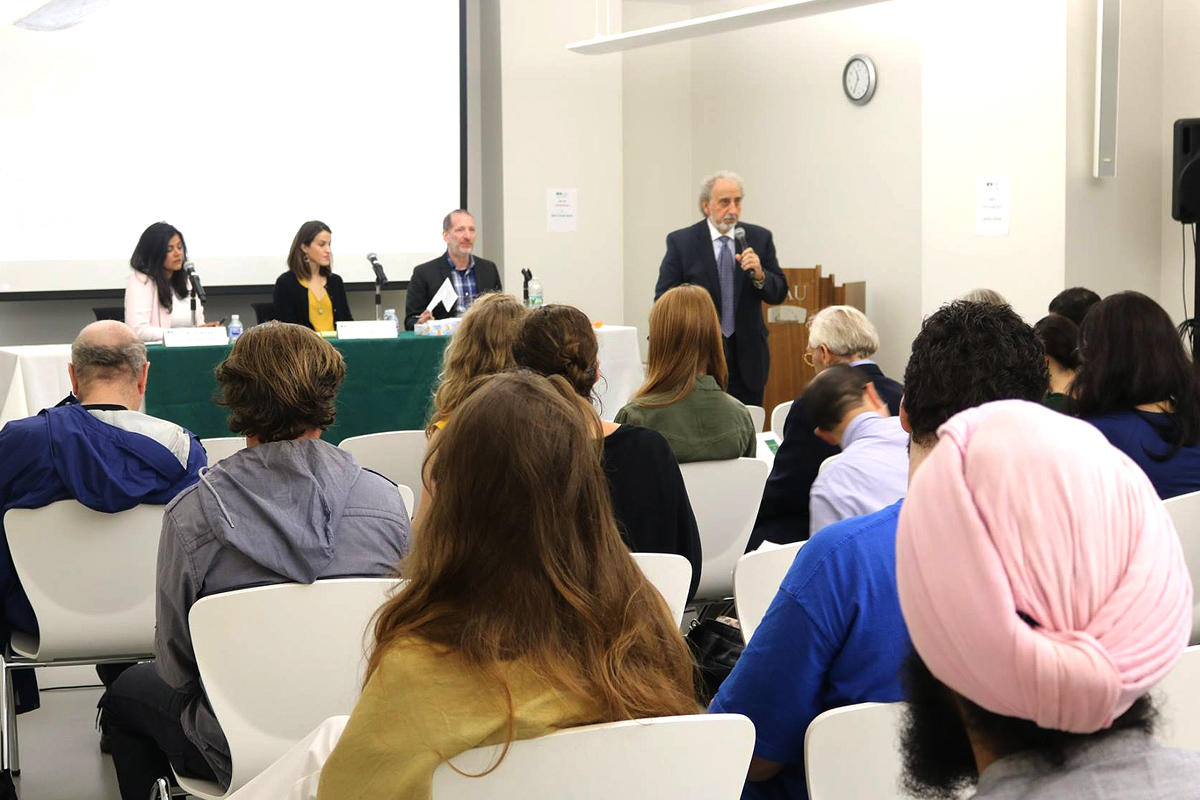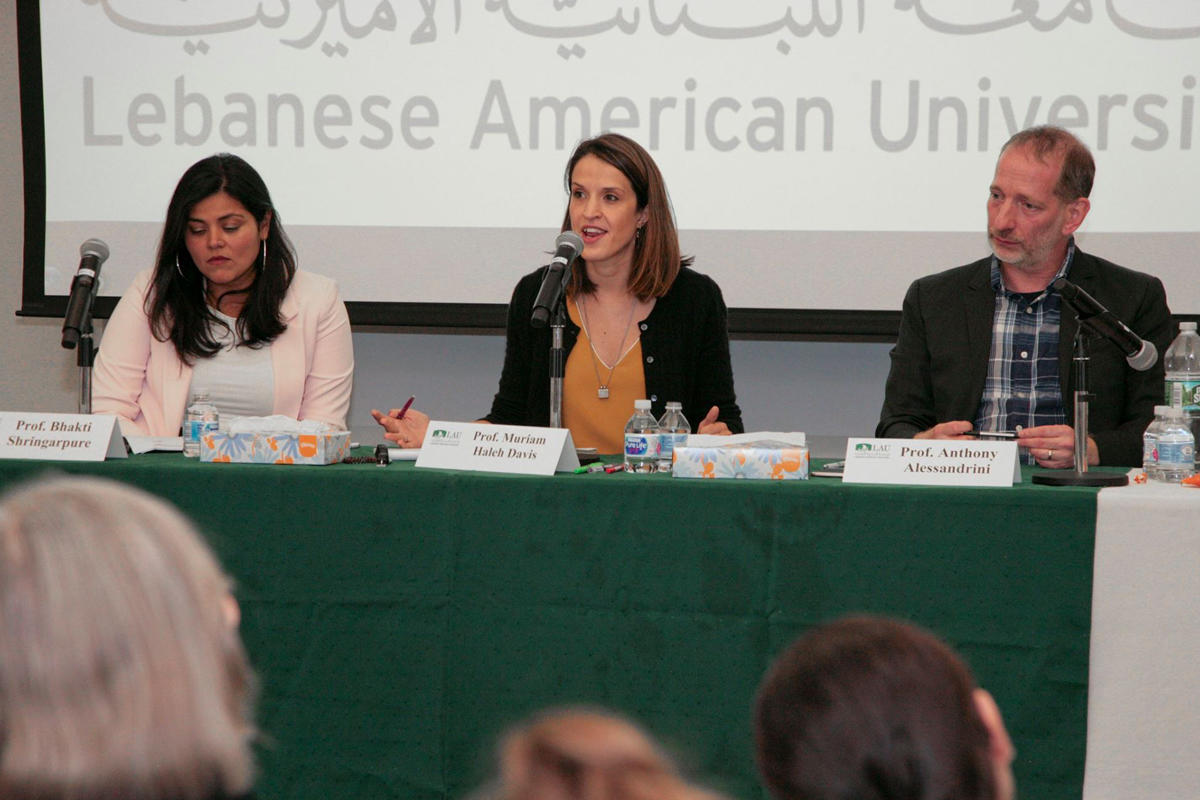Frantz Fanon, Decolonization and the Future of Middle East Politics
LAU NY hosts a panel on the revolutionary intellectual.
Psychiatrist, philosopher, revolutionary and prolific author, Frantz Fanon (1925-1961) is an instrumental figure in post-colonial studies. Often understood as a thinker who became a leader, Fanon’s work would become the theoretical underpinning for many decolonization and national liberation movements worldwide.
On the occasion of the publication of the English-language translation of Fanon’s previously uncollected writings, Alienation and Freedom, LAU’s New York Headquarters and Academic Center hosted a panel discussion on the relevance of his work, with a particular focus on how his writings may – or may not – speak to contemporary politics in the MENA region.
Fanon was from the French colony of Martinique. He served with the Free French army during World War II; after finishing his medical degree, he was sent to work in a clinic in the then-French department of Algeria. Living in Algeria and working there as a psychiatrist, Fanon experienced firsthand the psychological effects of colonialism on its rulers and subjects alike. This turn of events caused him to support the Algerian War of Independence (1954-1962) from France, and he became a member of the Algerian National Liberation Front until his early death at age 36 from leukemia. During his brief but productive life, Fanon published numerous books, including the seminal work The Wretched of the Earth.
On the panel were Anthony Alessandrini, professor of English at Kingsborough Community College-CUNY and of Middle Eastern Studies at the CUNY Graduate Center; Muriam Haleh Davis, assistant professor of history at the University of California, Santa Cruz; and Bhakti Shringarpure, assistant professor of English at the University of Connecticut (Storrs).
The panelists maintained that Fanon’s thinking remains relevant, is enjoying a vibrant afterlife and will most likely continue to do so in the future because many of the questions that he posed in his work are ones we are asking to this day, such as: How do we overcome racism – at the deepest psychic level where it lives with people? What does it mean to really change a society? Is it enough to just overthrow a particular regime or leader?
Dr. Davis, who specializes in Algerian history, stated that, “Our reflections on the future of Middle Eastern politics have much to learn from Fanon’s global, and relational, view of revolution.”
During the Q & A session, an audience member asked about the failure of the Algerian revolution as viewed from today’s standpoint, noting that what is happening in Algeria and the rest of the MENA region didn’t develop the way the anti-colonial movement had hoped, and that decolonization failed to remove the clutches of the colonizers because people are suffering now more than under colonial rule.
Dr. Shringapure noted that the term “decolonization” refers particularly to the dismantlement, during the second half of the 20th century, of the colonial empires established prior to World War I throughout the world. “Decolonization is usually a very short and violent period, when the transfer of power takes place,” she told the crowd. The panelists agreed that one should not look only at that period in history to measure whatever the anti-colonial project failed or succeeded in today’s terms.
Dr. Davis added that “Frantz Fanon makes it clear that decolonization doesn’t end with national sovereignty, but that it is an ongoing struggle that needs to usher in a new form of solidarity that can only take place by taking down the structural alienation inherent in the colonial system.”
Dr. Alessandrini observed that he would have loved to see what Fanon would have written had he lived another 30 years. “As a psychiatrist, decolonization for Fanon also means a process of thinking, of decolonizing the mind. It is not simply the success or failures of the political process or measurable indicators of economic growth, but the actual transfer and equal distribution of power.”
Fanon helps people understand, Dr. Alessandrini said, that the goal is to create a critical consciousness, “freed from colonialism and forewarned against any attempt at mystification or glorification.”
Understanding Fanon also means understanding today’s struggles as they relate to the historical forces that condition them. Dr. Alessandrini added that “this is especially important if we are to acknowledge that just as history has not yet ended, neither have the legacy and practices of colonialism.”

